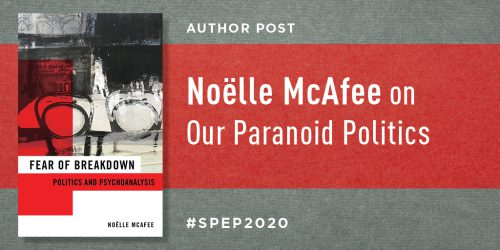Michael Marder on Trump Metaphysics
“Trump trumps metaphysics.”—Michael Marder
Michael Marder, author of The Philosopher’s Plant among other books in plant studies, recently turned his attention to another kind of life form: Donald Trump. In Trump Metaphysics, a recent essay for the Los Angeles Review of Books Philosophical Salon, Marder looks at metaphysics as a way to understand Trump’s recent electoral success. More precisely, he examines how Trump’s refutation of traditional metaphysics has exposed the failings of conventional politics and broadened his own appeal. As Marder writes, “Trump trumps metaphysics.”
Marder begins the essay by asking three questions, which he relates back to some of the core debates in metaphysics but have recently been linked to the candidacy of Donald Trump: “How to distinguish the real from the fake? What level of ignorance is simply unacceptable in public affairs? How to view matters of principle, or something like ‘the inner essence,’ behind changing appearances?” In considering the controversy around Trump’s evasiveness on his positions as well as his dispute with Romney in which counter-charges of being a fake or phony were leveled, Marder comes back to metaphysics’ interest in the authentic self. Marder writes:
It is simply futile to chastise Trump from the standpoint of stale metaphysical values, because he embodies a system, which has a long time ago outgrown and abandoned these same values. What does it mean to decry a candidate for the office of president as a “fake” in a country where a Hollywood actor was president (more precisely, enacted the role of president), for two consecutive terms? Does it make sense to bemoan this candidate’s ignorance less than eight years after the end of George W. Bush’s terms in office? Where is the logic of accusing him of vulgarity when the official pick of the Republican establishment for the presidential race hints at differences in penis sizes as momentous for the outcome of the contest?
Marder argues that Trump’s ability to exploit an admission of the bankruptcy of metaphysics helps to explain his success:
Curtly put, the bygone values are supplanted by nothing — by the nothing, to which everything has been reduced. Whereas Ted Cruz & Co. stand for the consciousness of this nothingness, Trump represents its self-consciousness, and this gives him an unmistakable edge over his rivals. He knows how to use the pure nothing that he represents, even as the other presidential contenders pretend that there is something behind their nothing. And so, Trump comes across as much more authentic in his inauthenticity than the others, who are busy drawing, in Plato’s words, the “shadow paintings of virtue” all around themselves.
Marder concludes by considering, as almost everyone else seems to be doing, what can be done to stop Trump:
To oppose him better, more effectively, we would need not to recycle bygone metaphysical slogans but to chart other paths towards what lies beyond metaphysics. Towards a multiplicity free of totalization, a proliferation of differences, and a sense of sharing that has dispensed with the very idea of property.






